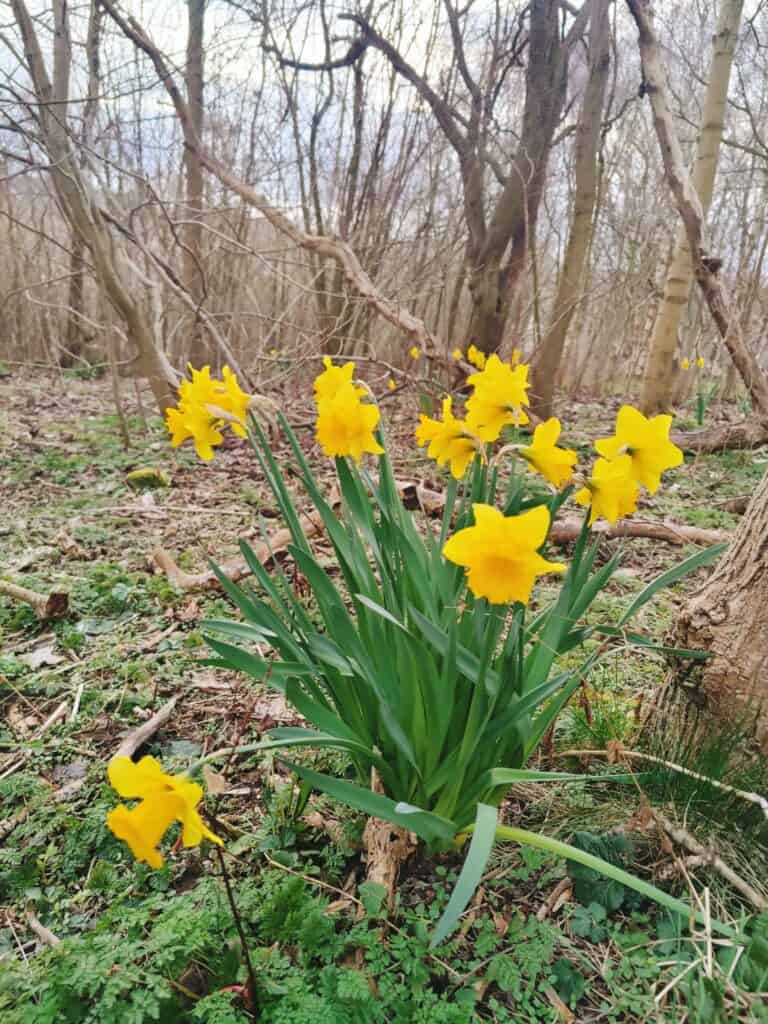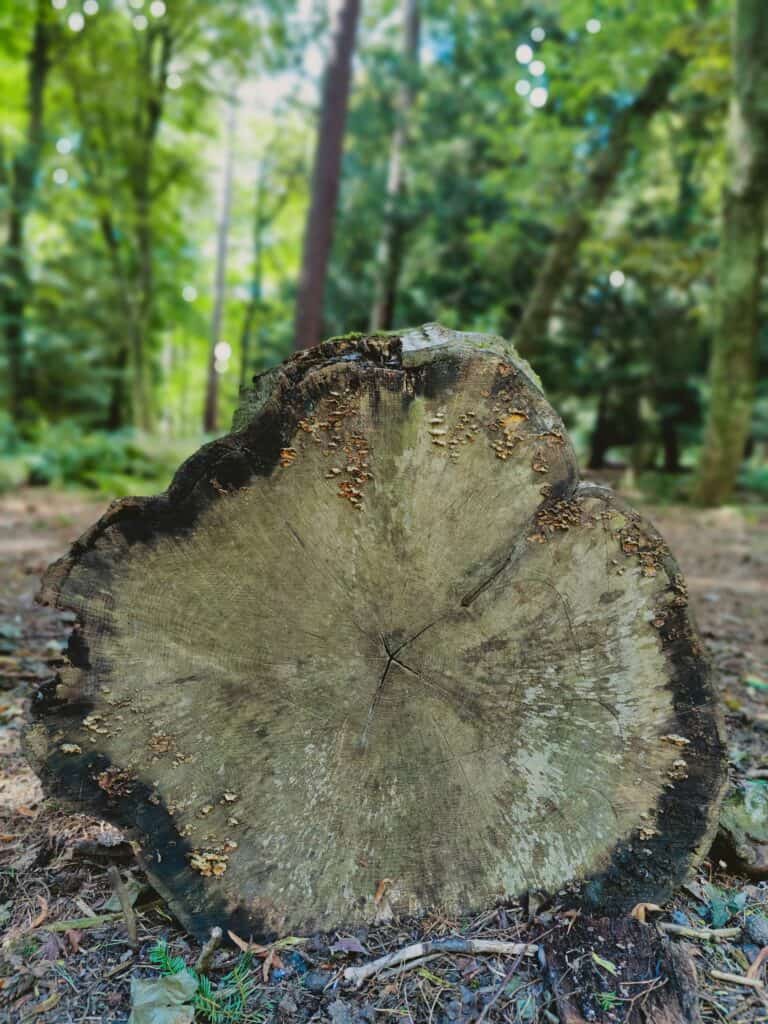I once wrote about the power of numbers, how they can tell stories and how they changed my life (1) but too often, when sharing a walk on social media, the numbers overshadow the experience. I rejoice at how many miles we have walked (it’s even my blogging name), at how many hours we have walked for and about how many calories we burned during the walk. Rarely do I count or recount the animals I have seen, the different types of flora or the moments when being in a wood or on a hill has filled me with a sense of bliss.
Those moments when I feel connected to nature.
So, when Paths for All shared that they were hosting a seminar on “Walking with Nature” I decided to learn more.
And what I learned has changed my walks forever and hopefully will also encourage you to walk with nature.
Nature Connectedness
Is a term in psychology (2) that describes the relationship between humans and the rest of nature. Importantly, this doesn’t simply equate to our exposure to nature, but instead it relates to how we interact with, observe and appreciate nature.
It’s about pausing to admire the shape of leaves, about listening to the sounds of birds and about taking a deep breath of that country air or feeling the heat of the sun on our cheeks (in Scotland, it’s more frequently the feel of an icy blast of air).
It’s having compassion for nature whether it’s out in the countryside or in our own gardens. Providing feeders for birds or bee friendly plants.
For those without access to parks or even a garden, it can be as simple as watching the clouds, gazing at the stars or marvelling at a sunrise.

Why does it matter?
Why should we care about connecting with nature? How does it benefit us and nature?
The first obvious benefit is happiness (3). Throughout human history, nature and the land have been intrinsically connected to our development and even our survival, so it’s natural that we have retained a psychological connection to nature. Think about how we respond emotionally to seeing new born calves or the first signs of spring.

Those who feel more connected to nature also tend to be more conscientious, outgoing, open and agreeable (4). They are more resilient and better equipped to deal with obstacles and problems (5).
If it is possible to take any positives from the Covid19 pandemic and associated lockdowns, one outcome is greater appreciation of nature and how we have used it to keep our minds and our bodies healthy. Hopefully, post COVID19, we will not forget how going for a walk in the park lifted our spirits and helped us to connect with others. We have learned that everyone needs nature.
A stronger relationship with nature also makes it more likely that we might adopt more sustainable and more environmentally friendly practices (5). An example of this was this weekend’s Glasgow city wide spring clean which saw hundreds of people collecting 9 tonnes of litter on Saturday alone. If only we could encourage people not to litter in the first place.
By feeling connected to nature, we feel more protective of it and now more than ever, every engagement with nature matters.
Love nature and love thyself.
Another benefit that I have personally experienced is a greater feeling of body positivity or rather, a reduced sense of self loathing. When out walking, I am not thinking about my weight. I am not concerned about my reduced fitness. If anything, I feel stronger, fitter and more alive when I’m walking through a wood, up a hill or occasionally swimming in a loch.
And it is a thing. Research shows that those who feel connected to nature have a greater appreciation for their own bodies (5). In feeling more connected to the world around us, we feel more positive about our place in that world and this can shape how we feel about our own shape.
Walking with Nature
So now, when I go for a walk, I walk with nature. I look more closely at the fungi, I appreciate the life (in the form of bugs, grubs and moss etc) that dead trees support, I stop and consider how wonderful it is to be able to experience the nature around me and I think more about the impact my presence makes. I stop and smell the roses.

In walking and connecting with nature, I feel happier. I feel less stressed. I feel more prepared for what life throws at me. I feel like blogging again and it has been a while.
Paths for All’s Walking with Nature campaign (6) has finished but it still provides a great resource for information including links to the “Noticing Nature” report (7) from the National Trust and the University of Derby.
And for those interested in learning even more (yes, that includes myself), you can enrol in a short course on Nature Connectedness with the University of Derby (8).
Alternatively, just go walking with nature and enjoy what Mother Nature has given us. The world outside is fabulous and stopping for a moment to appreciate it can make a world of difference to our wellbeing.
References:
(3) Capladi, Dopko and Zelenski (2014) The relationship between nature connectedness and happiness: a meta-analysis https://doi.org/10.3389/fpsyg.2014.00976
(4) Nisbet, E. K., Zelenski, J. M., and Murphy, S. A. (2011). Happiness is in our nature: exploring nature relatedness as a contributor to subjective well-being. J. Happiness Stud. 12, 303–322. doi: 10.1007/s10902-010-9197-7
(5) Mayer, F. S., Frantz, C. M., Bruehlman-Senecal, E., and Dolliver, K. (2009). Why is nature beneficial? The role of connectedness to nature. Environ. Behav. 41, 607–643. doi: 10.1177/0013916508319745 https://journals.sagepub.com/doi/10.1177/0013916508319745
(6) Swami, V., Barron, D., Weis, L. and Furnham, A. 2016. Bodies in Nature: Associations between Exposure to Nature, Connectedness to Nature, and Body Image. Body Image: An International Journal of Research. 18, pp. 153-161. https://doi.org/10.1016/j.bodyim.2016.07.002
(6)https://www.pathsforall.org.uk/wod-tip-and-story/walking-with-nature-connecting-wherever-you-are
(7) https://nt.global.ssl.fastly.net/documents/noticing-nature-report-feb-2020.pdf

